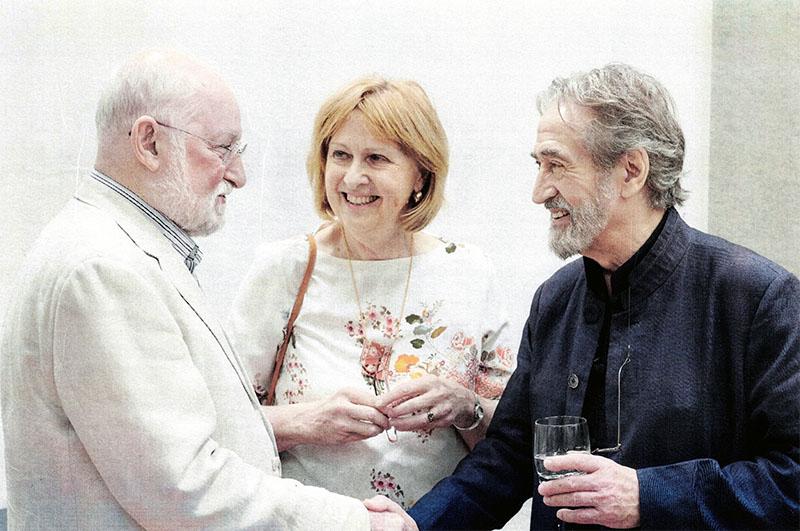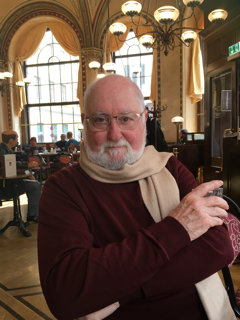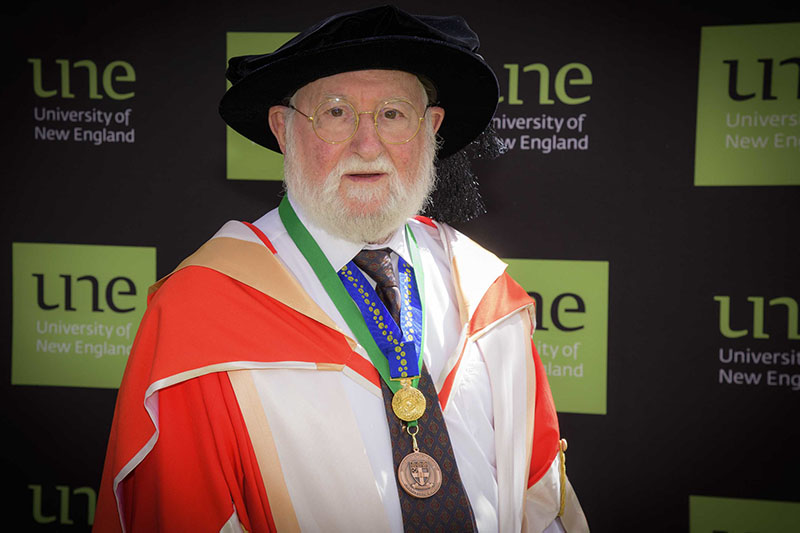John Stinson, OAM, sang Gregorian chant for four hours a day for almost 20 years as a Franciscan friar. It inspired a passion for the violin, an accomplished academic career and now, at the tender age of 86, an award-winning PhD thesis.
At our autumn graduation ceremonies John became one of our most senior graduands and the recipient of a Chancellor’s Doctoral Research Medal.
“It has taken me seven years, with a couple of health interruptions, but I got it done and feel this wonderful sense of accomplishment”
“It has taken me seven years, with a couple of health interruptions, but I got it done and feel this wonderful sense of accomplishment,” he said. Because despite an international reputation as a medieval musicologist and strong publication record, John had felt something was missing.
“Until you have a PhD, you haven’t really got much credibility in academia,” he said. “Others assumed I already had one. For me, this qualification provides validation.
“It is the second time UNE has changed my life. In 1967, when I was still a friar, I attended a music summer school at UNE and was offered a scholarship to become Canberra School of Music’s first viola scholar. It was a major turning point.”
Over the next few years John was posted to Melbourne, Brisbane and Townsville, where he performed his religious duties and music, established various youth orchestras and completed a Bachelor of Medieval English (Honours). In 1972 he left his order to pursue a career in academia. “I was an agent of change in those days,” he said.
By his retirement in 2000, John had developed interests in medieval musicology, art history, medieval philosophy and literature. During his final appointment at La Trobe University, where he was a Senior Lecturer in Musicology for almost 20 years, John developed and applied cutting-edge digital technology to create a pioneering online database of medieval music of the 14th century. The World Wide Web was in its infancy and no catalogue of this early, influential European music previously existed. John regards the database he made accessible to scholars internationally as “probably my greatest contribution” to musicology.

John Stinson OAM with his wife, Ruth Wilkinson, and viola-da-gamba player, Jordi Savall, at the re-opening of the Melbourne University Early Music Studio (EMS). Photo credit: Albert Comper
 But perhaps his dissertation – on the artistic representations of instruments in late 14th century musical performances – will eventually rival that, with John now negotiating a book publishing deal on his doctoral research.
But perhaps his dissertation – on the artistic representations of instruments in late 14th century musical performances – will eventually rival that, with John now negotiating a book publishing deal on his doctoral research.
“John is a fine example of the lifelong learning that UNE advocates,” said his supervisor, Associate Professor Jason Stoessel. “He is a remarkable person who continues to have a remarkable career. I started publishing with John before he became a PhD candidate and some of the methodologies he developed are among the most cutting-edge in research. He already possessed knowledge and skills that surpassed many a PhD recipient, and that, coupled with his ability to read five or six languages and his very critical mind, placed John among a very rare breed of PhD candidates.”
His resulting thesis weighs into a long-standing debate over whether voices exclusively or voices and instruments were used in the performance of music in the 14th century. He has challenged the prevailing thinking, providing evidence that musical instruments were, in fact, employed and musicians paid to perform.
“John’s outstanding contribution to medieval music research will resonate for many years to come,” Associate Professor Stoessel said. “It will impact internationally and inform approaches to the study and performances of late medieval music in new and refreshing ways. John is a very deserving recipient of the Chancellor’s medal and his achievement demonstrates that it’s never too late to pursue advanced research on a topic that one is passionate about and to seek to answer some of its ‘big questions’.”
Not that John is resting on his laurels. “I don’t have any plans for another degree at the moment but I have lots of plans to keep on publishing,” he said.


